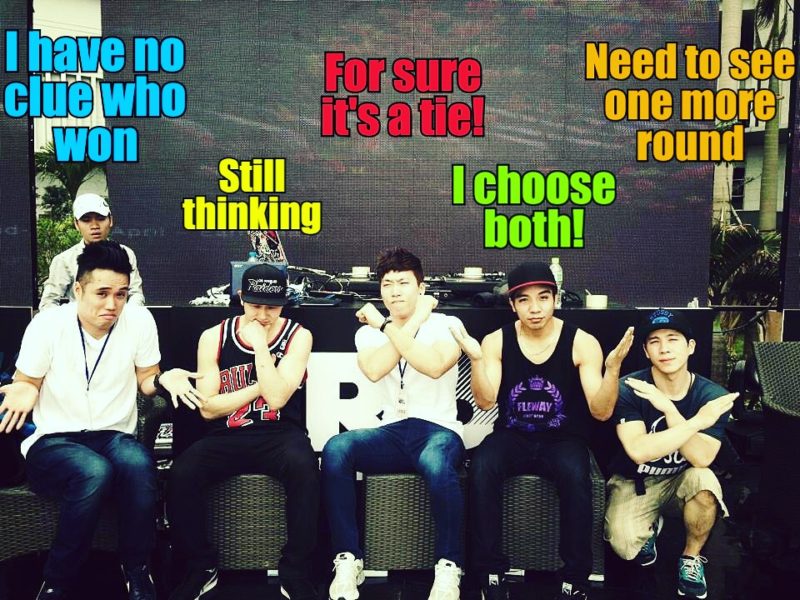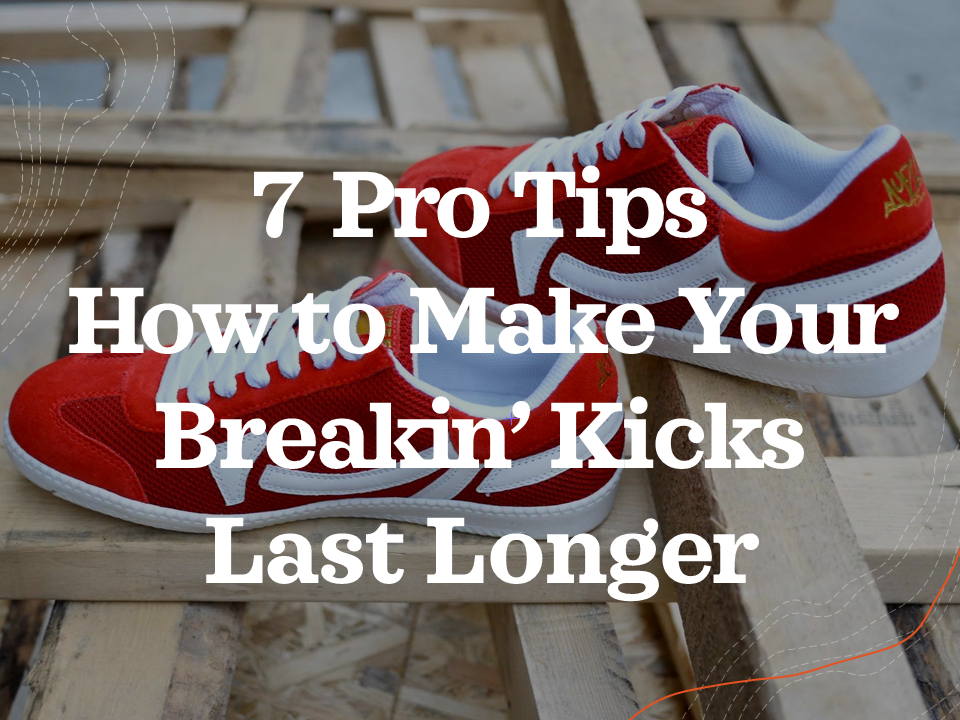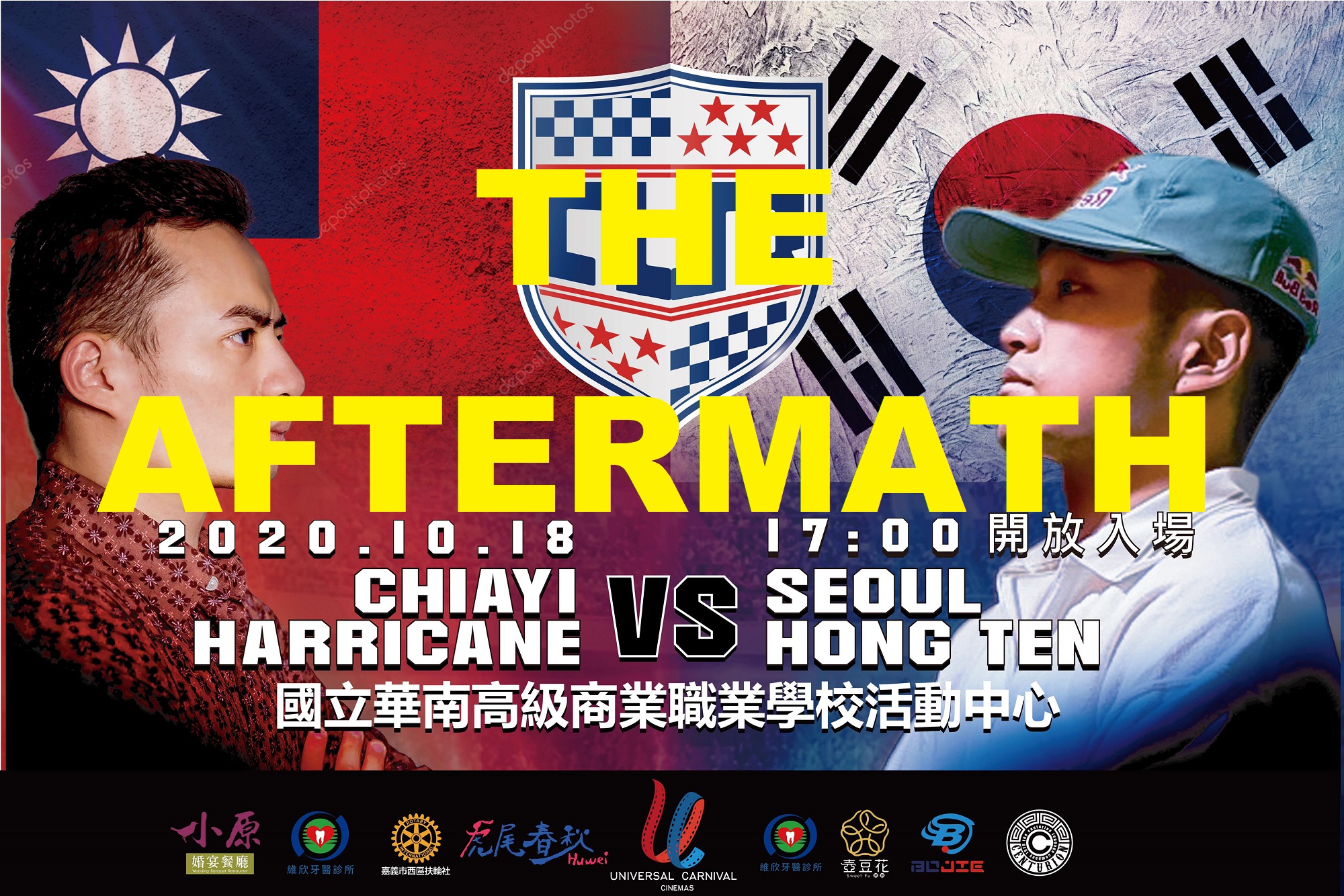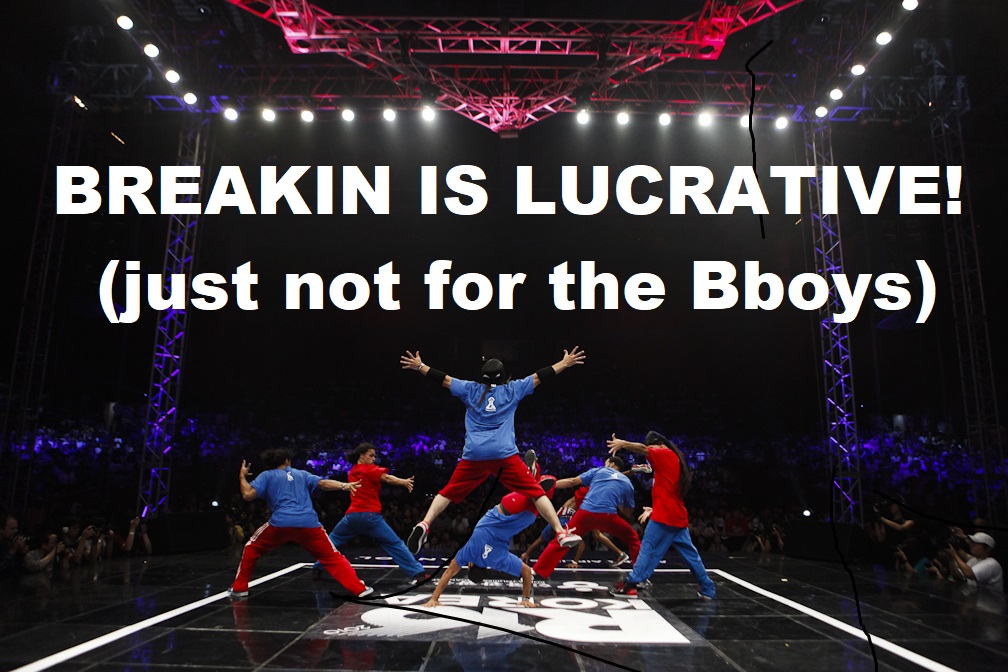Today I saw a shared video on my social media news feed called “Ties are bad decisions” by a Bboy named Razzy from Filthy Feet of Vancouver Canada. The video goes on to make some really good points why voting a TIE can be annoying to competitors, while at the same time acknowledging that ties are good for spectators. Some of Razzy’s major points were:
- Judges are being Lazy, they couldn’t make a decision so they vote a tie
- Two rounds can’t be exactly the same
- Abundance of criteria that Not making a decision shows lack of depth
- It’s the judges JOB to make a decision
- It makes jams go on longer
- It gives an unfair advantage to participants
- It complicates things such as, who should vote the tiebreaker?
While I do agree with these points on some level, something inside me disagrees from a perspective that comes from BEFORE Bboy competitions and the round for round judging format became the standard. The few jams that were around during that time, were meant to encapsulate the essence of the “raw cypher battles” which was what the standard battle formats for the culture during that time.
The point of this blog isn’t to debunk Razzy, but to provide a bigger and different perspective. So based of Razzy’s 7 points, here are an alternative 7 points and perspectives.
#1 In some judges expert opinion, it SHOULD be another round.
While there definitely are judges who hide their bias and the fact they aren’t paying attention behind ties, on the other hand, there are judges who are judging on the traditional raw cypher standard of, it’s not over until one of them knows they lost. A raw battle can go on and on until one of them is satisfied that they proven their point. A legendary battle goes on and on where both Bboys mutually end up giving each other props, thus leaving it up to the crowd to rhetorically decide who inspired them more.
So in a limited rounds competition, sometimes both sides have equally made their points in totally different approaches and none has either clearly “served” or “burned” the other. From a real Bboy perspective, both Bboys SHOULD want to go again until they have satisfactorily made their point. Making a decision when it’s too close is not only robbing the Bboys of their chance to get in one last word, but it’s also robbing the culture of the ability to show how true battles “should” be approached… which is to always be ready to throw one more throwdown to get your final point in.
SIMPLE SOLUTION:
Let all Bboys know that there is a chance to go one more round. Allow the judges to choose a tie if needed, but let the tiebreaker be the decision maker with no more ties, and let only the judge who tied, make his decision!
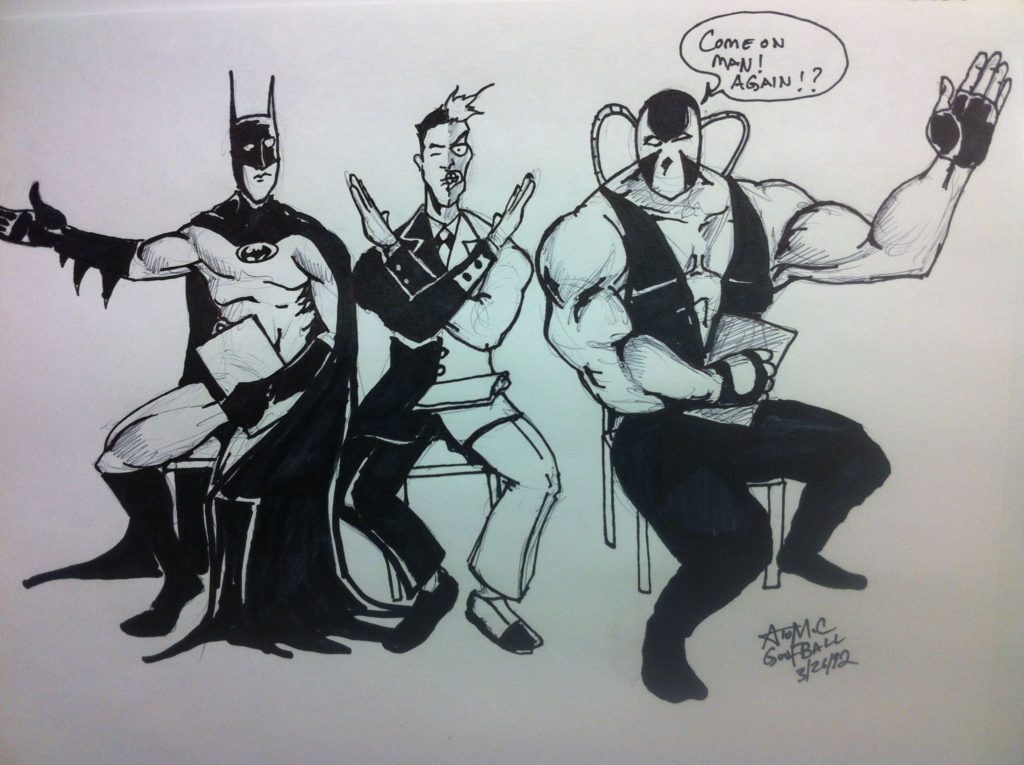
drawing by Atomic goofball LOZ
#2 Battles are supposed to be like an argument… not a competitive art contest
While it’s true that no two rounds are exactly the same, but if they were, it would be a lot easier to judge. What i mean is, if the first person did a specific style and finished with a specific move, and the other person did the exact same set, that would mean that the 2nd person won because he basically said, “Your stuff is so easy I can do the entire thing, watch!”
Round for Round judging has really changed the way Bboys are Breakin these days and in someways, completely destroyed the rawness and true essence of a battle. In a true cypher battle, people rarely go round for round, it’s usually an “overall feeling” like a conversation or debate. Therefore, this new approach of “im just performing my round, my opponent performs their round, and the judge decides who wins the round” is not only different from the original approach to battling, but it’s also a step in the wrong direction for the culture.
This approach to battling is from “Freestyle or Allstyles” competitions. Real Bboy battles (in the circles) are totally different. Bboy battles are a physical & mental warfare where one uses his skills to humiliate and bust the ego of the opponent and crush their spirit, similar to how true rap battles are meant to be. Todays Bboy competitions are more like “spoken word contests” rather than “rap battles”.
My point is that a 1 round battle isn’t really an argument since the first Bboy or Bgirl is only asking a question and doesn’t get a chance to reply. Therefor the two rounds are completely different argument is irrelevant in a true Bboy battle context. But then again, due to time restraints, 1 round battles are necessary to save on time.
SIMPLE SOLUTION:
Continue with 1 round battles with a chance for a tie breaker.
#3 It’s the abundance of criteria that constitutes a tie decision to be made
While Razzy made a god point that a tie can show lack of depth in a judge, I also believe that a judge who…
- A) actually looks at everything and doesn’t want to use his own personal bias by putting more weight to his preferences…
- B) Is hired for his specific opinion and preference and hasn’t seen enough to make his decision…
is what could contribute and constitute the judge to objectively call a tie.
For example, let’s say I personally prefer originality, but one side was more original and overall better execution, but the other one was really dynamic with his style and actually responding, I might want to see one more round to see who is actually dancing more. A judge may have in his mind his objective set criteria where he needs to see one more round to tip the scale.
In a raw cypher battle, both Bboys battling can feel when the battle is close so they keep going. Likewise, both Bboys will come to place where they can feel like one won and lost. Yes it’s true that there are times that both Bboys think they won (or lost) but it’s up to the judge to decide and if he needs one more round, allow him one more. As long as all participants know that there is a chance for tie’s they will begin preparing more moves and more variations.
But then again… what if judges aren’t paying attention and just call a tie to be let off the hook?
SIMPLE SOLUTION:
In the case of a tiebreaker, let only the judge (or judges) who called a tie be the one to vote for the tiebreaker, putting the pressure on him or her to choose the winner.
#4 Judges are chosen because they earned an Opinion
While it’s absolutely true that judging is a job, in a culture based of skills, reputation, proper respects & legacies, a judge isn’t hired just to make a decision, but they are hired because of their opinion.
While some judges vote absolutely subjectively based off gut feeling and personal preference, other judges give it their best to be fair, objective and have their own specific criteria and how they tally up the scores. When a judge like this with all his criteria and expertise believes it’s a tie, why force him (or her) to go against his values of being fair and objective and calling a battle for how he sees it?
In the end, it is the organizer who has all the power as they are the one hiring or inviting the judges. Some organizers hire judges because they just need someone professional and want the judge to just “do his job”, while other organizers hire judges because of the respect and honor of the work the judge put into the culture and want that judge to give his opinion.
There isn’t a right or wrong way for organizers to hire judges, as long as you make it transparent from the beginning why you hired the judges and what you want them to do. Likewise, if the organizer doesn’t want the judges to vote ties, simply say so to the judges AND don’t forget to tell all the participants that the judges will not be voting ties.
But what if you are a judge who has a hard time making decisions of one round battles and truly believe it’s a tie?
SIMPLE SOLUTION:
Give the win to the Bboy who went first. It’s the job of the 2nd Bboy to do more or better (not the same level) who technically has an advantage of going second.
#5 Events going too long is an organizational issue, not a judging issue
While it’s true that long drawn out jams can get annoying and the occasional tie breakers can add a few more minutes to an already long event, what makes jams long aren’t the tie breakers but rather the amount of participants and poor organization and scheduling issues.
For example, if there are 10 tie breakers in one night, each tiebreaker is aproximately 3 minutes (45 seconds each dancer, 30 seconds for judge tallying and extra minute for host to talk) the most would be 30 minutes added to an event. Every organizer should schedule minimum 1 hour extra in case the event schedule is running late. But when was the last event that had 10 tie breakers?
As Razzy acknowledged, tiebreakers add excitement to events and it really shows which Bboys really has more to offer, and not a minimal set amount of battle rounds. Every organizer should be scheduling time in for tiebreakers, only if they want to add more excitement to their events.
But what if the event is already a 12 hour event with 4 categories and there isn’t enough time to add tiebreakers, but still want to allow the judges to be free to make calls how they see fit?
SIMPLE SOLUTION:
Make a rule that due to time restraints, in the case of a hung jury, winner goes the side who goes first (which will also bring an end to the time consuming mexican stand-offs) and there will be no tiebreaker rounds until the top 8.
#6 Real Bboys Are Ready To Go An Extra Round To Prove They Won
Many Bboys today prepare just the right amount of sets for competitions. A smart competitor will ask, how many rounds per battle? Then make a prelim set, another set for top 8, and so on until the finals. This has become so common that many amateur Bboys that don’t expect to make it to the finals, create only a few sets to see how far they can go. If they somehow make it to the semis, they may have absolutely nothing left! Because of this approach to competitions, it’s fair to argue that it’s unfair for a certain Bboy to have gone more rounds than other Bboys because they are using more arsenal and stamina. While i somewhat agree with argument, another part of me believes that the younger Bboy culture needs to learn the concept of over preparing and having the uncertainty of going a few extra rounds.
Back in the mid 2000’s at the beginning of the competition era, tie breakers were a normal part of Battles. One time I made it to the final battle against ground zero in the UK at the Urban Games 2004. When the judges asked us how many rounds, I said,
It doesn’t matter how many rounds, 3,4, 5 rounds each, I don’t care, whatever you choose, but there CAN’T BE A TIE BREAKER.
They agreed to make it 3 rounds per Bboy and there won’t be a tie breaker. With that in mind, I gave it everything. I threw all my biggest moves and spent every single ounce of energy. After the battle, to my surprise, they called it a tie. I had nothing left and was pissed. We ended up losing the battle but won the crowd.
Now in my opinion I have every right to be upset because, they agreed that there wouldn’t be a tie breaker, so I decided to give everything I got. Had I known that there would be a possibility for a tie, I wouldn’t have pushed my energy to burn myself out. Perhaps in doing so I may have not even got to the tie breaker, but my point is, that having the uncertainty that there may be another round unless you “prove” you won the battle completely changes the game, and in my opinion is what makes Bboying so dope. It’s more than the moves, style and dance, it’s also about “the game”.
Perhaps I see breaking this way because I come from a generation before competitions and we knew that a true battle had no set time or rounds. When we felt that our opponents had nothing left, then we threw our big moves to seal the deal. We knew how to strategize by starting out with smaller moves as bait and slowing bringing out bigger and better variations as the battles progressed.
This way of thinking is what made battles back in the days so interesting and exciting! It wasn’t just about the style and technique, but also the conversation and the desire to 1-Up the opponent and get in the last word. This approach and way of Bboy the culture needs to be preserved in the best way possible while ofcourse, taking into account that a competition is different from a cypher battle. Just because a competition is different from a cypher battle, doesn’t mean that we shouldn’t preserve what the true cypher battle was about. But how do we preserve this vital element in today’s culture?
SIMPLE SOLUTION:
Stop stigmatizing ties and forcing judges to vote based on preference by allowing them to read the “conversation” of the battle by leaving room to go an extra round, thus teaching today’s generation to prepare for tiebreakers while having extra secret moves in their arsenal.
#7 It’s up to the event organizers to make the Rules
It’s only been in the past 5 years that the notion of “No more ties” has been spread throughout the global Bboy community. I haven’t really heard any prominent Bboy who was around before the competition era pushing the No Ties concept.
While I agree that if an event organizer asks the panel of Judges to not vote ties, then that request should be obliged. If not, then it’s up to the judges to personally judge with their own criteria which includes voting a tie if they believe the battle to be a tie. Of course no judge wants to be labelled a habitual tie caller, or else that may affect how other organizers and the culture sees them fit to judge. However, forcing a Bboy to not give ties has lead to some really bad calls and biased decisions.
For example, it is well known in Asia that voting against your friends or crew is almost unheard of. So most Bboys would just vote a tie as a “non decision” which majority of Bboys understood. But today because of forced decisions, everyone knows which way they are going to vote regardless. This has lead to many Bboys not entering competitions and to the death of many scenes in many cities!
To give a better analogy, let’s say I am battling someone who I know is a friend,crew member or affiliated to one of the judges. If I know i won the battle, I wouldn’t expect the biased judge to vote for me. I would expect him to throw up a tie or “no vote” which, from Bboy to Bboy, is a sign of respect to me and his crew member. This allows him to get off the hook from being hated by his crew member AND on the other hand, from being called out by yours truly.
This way of thinking is more cultural and only understood between real Bboys, and should only really be allowed on a cultural level event. Large scale professional events that are marketed to a non bboy audience ofcourse needs to be portrayed as something professional and fair, but local level events… we all know who is affiliated with who and therefore why certain Bboys vote ties. It’s part of the street codes and culture and in some ways, is a part of our grassroots Bboyin politics.
Now I know that there are a lot of solutions, alternatives and possibly better ways to make things better for the Bboy competitions, but in such a fragmented and non-united community, where the power is actually in the hands of the organizers and not the Bboys themselves, we need to be careful of what dogma we push onto a culture that was born from the streets through a marginalized and forgotten community. Yet at the same time, we need our culture to progress to a level that it can become a self sustainable industry and living for the Bboys and Bgirls who give their lives to this artform.
My point is, creating a one way of thinking without questioning “why not” can rob this culture of it’s diverse approaches, perspectives and traditions. If every active competitor knew that they need to train for possible tie breakers and to have bigger arsenals, what harm could that have on the culture and art form?
A legitimate question would be, well if some events allow judges to vote ties while others do not, how do the Bboys know what are the rules and what is fair? On a panel of 3 judges if two vote a tie and one votes, is it a tie or does the one vote count? Does only the tied judges vote in tiebreakers? Are judges who are in the same crew as a competitor going to judge or sit this battle out? How does our culture deal with all these complex differences?
SIMPLE SOLUTION:
Every organizer should write out their event rules and post it on their event page so every participant can read it in advance and know exactly what they are getting into, that way they can prepare efficiently while knowing how the rules of one event differentiates from the others!
Overall, since the beginning of my judging career in the early 2000’s, I took judging very seriously and wanted to be able to give not only feedback but a fair objective reasoning why someone won or lost. When I vote a tie, it’s because based on my criteria, it really is a tie and needs one more round. If an organizer tells me not to tie, I give it to the ones who started the battle since it’s the job of side that goes second to do better, not tie. But more important than my opinion is to preserve all the essences of the true Bboy battle and culture while making progress on our journey to becoming a professional self-sustaining industry, even if means having to go the extra round.
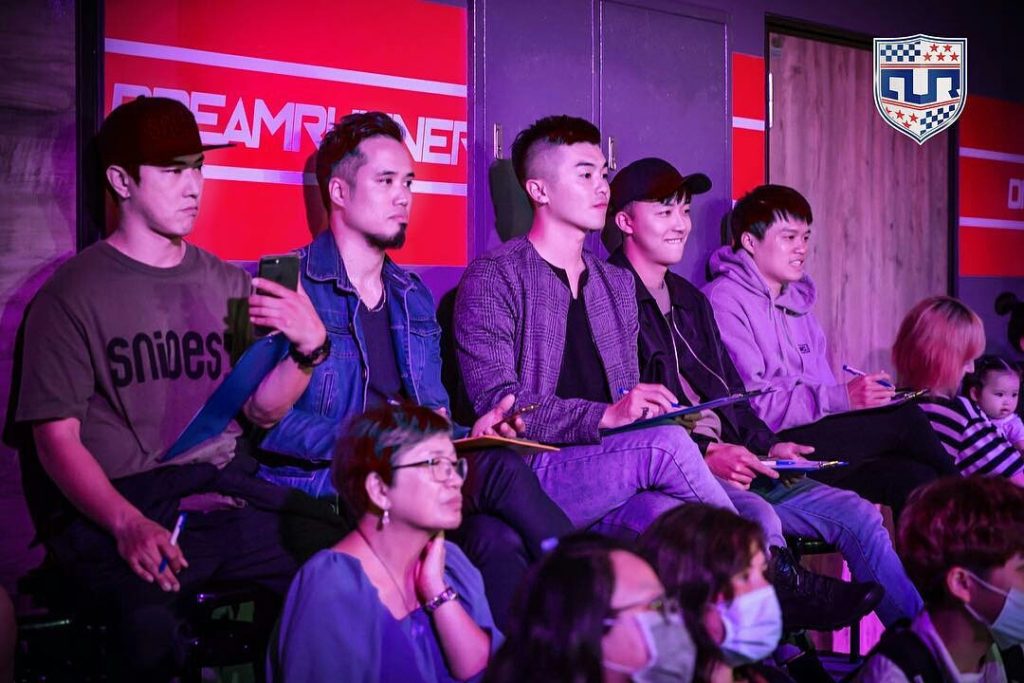
#bboy #breakdance #bboyjudging #bboyties

